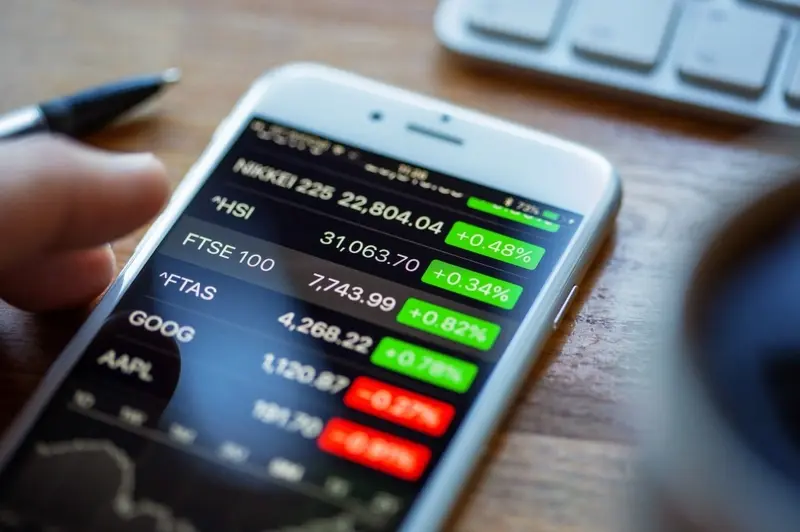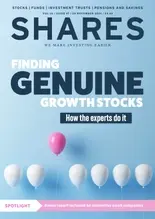
Share prices were rising early Monday, despite figures showing weaker-than-expected UK economic growth, though the week's main risk event lies on Tuesday, with a US inflation reading.
The FTSE 100 index was up 52.61 points, or 0.7%, at 7,403.68 early Monday. The mid-cap FTSE 250 index was up 94.31 points, or 0.5%, at 19,282.34. The AIM All-Share index was up 2.25 points, or 0.3%, at 882.85.
The Cboe UK 100 index was up 0.5% at 739.58. The Cboe 250 was up 0.5% at 16,615.33, and the Cboe Small Companies up 0.2% at 13,734.46.
In mainland Europe, the CAC 40 in Paris was up 0.3% while the DAX 40 in Frankfurt was up 0.7% early Monday.
‘I believe that the latest market optimism could be explained by hope to see a second month of softening inflation in the US at this week's CPI release,’ said Ipek Ozkardeskaya at Swissquote Bank.
Due on Tuesday, the US consumer price index reading is expected to show the annual US inflation rate softening to 8.1% in August from 8.5% in July, according to FXStreet.
Headlining the economic calendar on Monday, however, was UK gross domestic product. Growth was less than expected in July, but the pound still made headway in morning dealings.
The UK economy expanded 0.2% month-on-month in July, the Office for National Statistics said. This marked a recovery from June's 0.6% slide, but undershot market forecasts for 0.5% growth.
Annually, GDP rose 2.3% in July, accelerating from June's 1.9% rise.
‘July UK GDP has come in slightly softer than expected at 0.2% month-on-month. However, the adjustment for the June bank holiday makes the figures a little difficult to read, and we think the Bank of England will take more notice of tomorrow's August jobs data for insight into how tight the UK labour market really is,’ said ING.
The Dutch bank added: ‘All in, we expect the BoE to hike 50bp again when it decides policy rates on 22 September.’
Added Daniel Mahoney, UK economist at Handelsbanken: ‘If the [energy] price cap is successful, it would probably mean that we are now near to peak inflation and that we have already reached the low-point for household spending. It is now very plausible that the UK will avoid a recession in the next 18 months.’
Sterling was quoted at $1.1680 early Monday after the data, higher than $1.1580 at the London equities close on Friday.
The Bank of England's interest rate decision was due to take place this Thursday, but has been delayed by one week following the death of Queen Elizabeth II.
The BoE is widely expected to hike interest rates by another 50 basis points at September's meeting, after last month carrying out a half-point hike - the biggest hike since 1995 - to take UK Bank Rate to 1.75%.
It also was confirmed that the day of the Queen's funeral, to take place next Monday, will be a bank holiday in the UK. The London Stock Exchange previously had said it recognises all UK bank holidays, so likely will be shut that day.
Towards the top of the FTSE 100 early Monday were miners, benefiting from a risk-on market tone at the start of the week. Anglo American shares rose 2.5% and Glencore added 2.2%.
Antofagasta rose 1.5%, despite operating difficulties in Chile. The miner said severe sea swells in August overturned a construction platform working on the marine works of the Los Pelambres desalination plant project.
These have continued, impeding further recovery work. As a precautionary measure, the Chilean environmental authority has instructed that marine works should be placed on hold ‘until the clean-up of the remaining sunk equipment carrying fuel or lubricants is progressed such that any risk of environmental impact is removed’.
Shares in FTSE 250-listed Serco declined 3.2% after saying Chief Executive Rupert Soames intends to retire from the firm in September next year, at which point he will have served the outsourcer for over nine years.
He will step down as CEO at the end of 2022 and will be succeeded by Mark Irwin, who is currently the CEO of Serco's UK & Europe division.
‘It has been the privilege of my working life to lead Serco for the last eight years, but it is now time for me to outsource myself,’ said Soames.
Shares in Ferrexpo, which produces iron ore in Ukraine, rose 16%. Russian troops were withdrawing from key areas of Ukraine's Kharkiv region, including the strategically important city of Izyum, the Defence Ministry in Moscow said on Saturday, as Kiev's counteroffensive to recapture territory gained momentum.
Russian troops were also to withdraw from the city of Balakliya, which the Ukrainians had reported as having liberated last week.
President Volodymyr Zelensky on Saturday evening said that, since the beginning of the month, the Ukrainian army has recaptured around 2,000 square kilometres of territory in areas previously occupied by Russia as part of Kiev's counter-offensive.
The euro traded at $1.0192 early Monday, up against $1.0003 late Friday.
Against the yen, the dollar was quoted at JP¥142.73, up versus JP¥142.53.
Bank of Japan Governor Haruhiko Kuroda said the yen's recent struggles are undesirable, Reuters reported on Friday.
Kuroda met with Prime Minister Fumio Kishida to discuss the currency, as it hurtles towards JP¥150. The yen is currently priced at levels not seen since 1998, despite its status as a safe-haven currency in the midst of the war in Ukraine.
‘Sharp currency moves are undesirable as they destabilise corporate business plans and heighten uncertainty,’ Kuroda told reporters after the meeting.
In Asia on Monday, the Japanese Nikkei 225 index closed up 1.2%. The S&P/ASX 200 in Sydney ended up 1.0%. Financial markets in Shanghai and Hong Kong were shut on Monday for the mid-Autumn festival, re-opening on Tuesday.
Gold was quoted at $1,725.73 an ounce early Monday in London, rising from $1,715.81 on Friday. Brent oil was trading at $92.51 a barrel, up from $91.75 late Friday.
Copyright 2022 Alliance News Limited. All Rights Reserved.




